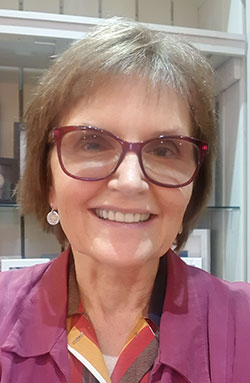Dr Marian Gwyn
Wales and Slavery - Re-Knowing and Re-Telling
Acknowledging Wales’s role in Atlantic slavery raises fundamental questions of national identity. Stories of Welsh princes, the gwerin and working-class rebellion have long dominated its storytelling. But 18th-century Wales was not a romantic backwater on the edge of Britain - it played a vital part in the British Empire’s pursuit of economic gain, at profound human cost. Wales is now beginning the journey of uncovering these truths, as it acknowledges its own growing diversity.
Biography
Marian Gwyn is a heritage consultant, researcher, writer and educator. Her interests and expertise cover a wide range of specialities, developed from many years’ experience in the heritage industry, working for the National Trust.
Marian’s PhD, gained at Bangor University, explores the challenges faced by heritage organisations in acknowledging the ways in which their assets are connected to colonial atrocity. She currently advises on Leicester University’s Colonial Countryside project, a child-led initiative that explores country houses and slavery, and on the National Trust’s Transformation project, which is reinterpreting Penrhyn Castle, a property built from an initial fortune made from slavery. She is Head of Heritage for Race Council Cymru, an organisation dedicated to supporting the diverse communities of Wales.
Committed to encouraging public engagement with difficult histories, she teaches and speaks on Wales and slavery. Her publications include Memorialisation and Trauma – Britain and the Slave Trade, Wales and the Memorialisation of Slavery, and Enslaved Women – Welsh Slave Masters. She is currently writing a book on the Jamaican sugar plantations of the Pennants of Penrhyn Castle.